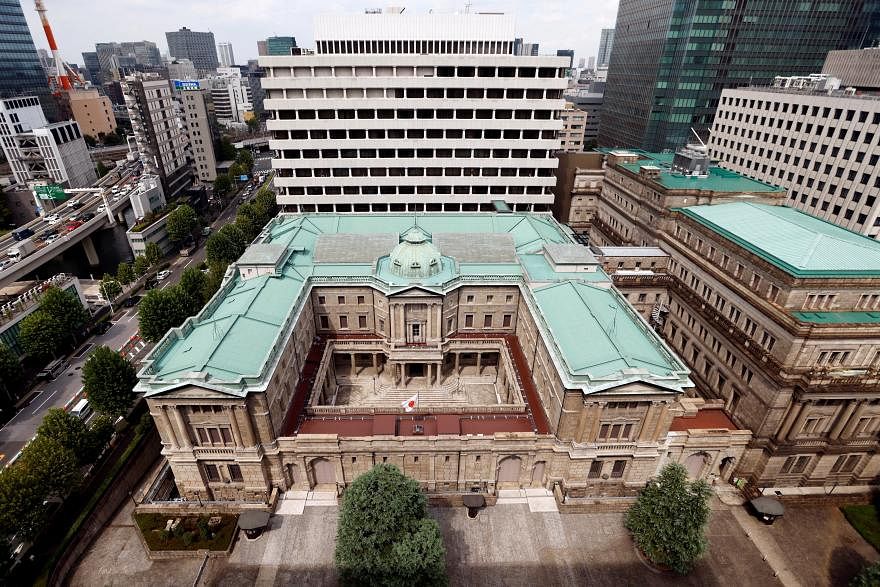THE Bank of Japan (BOJ) is expected to revise down its assessment on consumption and factory output this month, three sources familiar with its thinking said, nodding to recent weak signs in the economy that underscore the fragile state of its recovery.
While this could fuel worries about policy outlook, the sources said the BOJ was expected to maintain its forecast that the economy will continue recovering moderately, suggesting the revisions are unlikely to deter it from phasing out its massive monetary stimulus in March or April.
“Consumption is not very strong and output is falling due to the auto output disruptions,” one source said. “But there’s no change to the view Japan’s economy is recovering moderately,” the source added, a view echoed by the other two sources.
The sources spoke on condition of anonymity as they were not authorised to speak publicly.
The board will discuss the economy’s assessment and its outlook, as well as whether to tweak its ultra-loose policy, at its next meeting on Mar 18 to 19.
The BOJ currently describes consumption as “rising moderately” and output as “moving sideways”.
The central bank may also offer a slightly bleaker view in March on the overall economy, compared with the current view that it is “recovering moderately”, the sources said.
Japan’s economy slipped into recession in the fourth quarter on weak domestic demand, though recent data pointing to strong capital expenditure will likely lead to an upgrade when revised gross domestic product figures are published on Mar 11.
Factory output fell 7.5 per cent in January from the previous month, the biggest drop since May 2020, due largely to production stoppage at Toyota Motor’s small-car unit Daihatsu.
Household spending also dropped 2.5 per cent in December from a year earlier, extending its decline for a 10th month, due to supply disruptions of cars and continued declines in real wages.
Japan’s government downgraded its view on the economy in February for the first time in three months on sluggish consumer spending, suggesting a bumpy path out of a recession in the face of slow wage recovery and lacklustre industrial output.
Sources have told Reuters the BOJ was on track to end its negative interest rate policy in the coming months on growing signs that companies will continue to offer bumper pay amid a tightening job market.
With inflation exceeding its 2 per cent target for well over a year and prospects of sustained wage growth heightening, many market players expect the BOJ to end its negative interest rate policy by April. REUTERS



